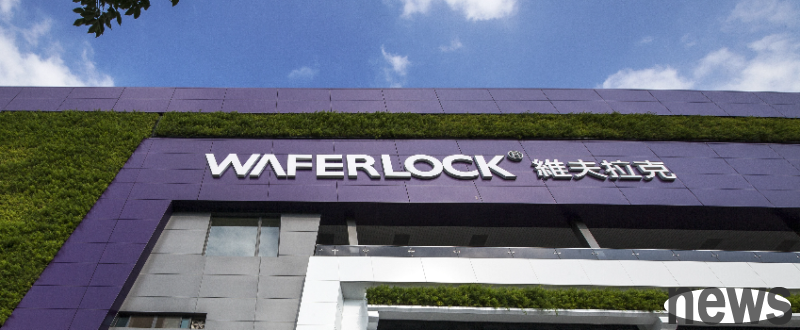
Twenty years ago at the Cologne Hardware Fair in Germany, an electronic components dealer from central Taiwan displayed a self-developed sensor equipment module in an inconspicuous corner. No one knew at the time that this small module would open the door to the high-end electronic lock market in Europe.
Twenty years later, this microcontroller agent named Huayuning has marketed the electronic lock brand "WAFERLOCK" created by it all over the world, with an annual output of up to 100,000 units and a total of more than 1,000 customers. It has accounted for more than 50% of the domestic new construction market. It is favored by well-known builders such as Farglory, Baohui, and Longbao, and has also established a foothold in the high-end markets in Europe and the United States.
With the gradual reduction of inventory in the microcontroller industry, coupled with the steady growth of the electronic lock business with a gross profit margin of 50%, Huayuning's revenue in the first half of this year is approaching 2 billion yuan, and the after-tax net profit (EPS) per share is 2.01 yuan, almost equaling last year's full-year performance; in order to expand capital, it is scheduled to be transferred from the opening to the over-the-counter market at the end of November.
Patent adds value, not just OEM"The PCB (Printed Circuit Board) and motor clutch of the electronic lock cylinder are all designed to be waterproof, and the entire unit can operate even if it is placed in water." In an exclusive interview with "Today Weekly", Huayuning Chairman Lian Zhimin picked up his own products and introduced them eloquently.
"Huayuning holds a number of patented technologies. It is not just an OEM, and can completely pass on the cost of US tariffs to customers." Analysis of domestic electronic lock industry.
In 1992, Lian Zhimin, who was only 28 years old and had a background in purchasing in the electronics industry, saw that he had a distribution customer base and boldly invested 3 million yuan to establish Huayuning to act as an agent for Philips transistor components.
Although profits were made in the first year of starting the business, Lian Zhimin believed that the profit of distributing standard parts was too low, and that only products with high technical content could last long. Taking advantage of the rise of microcontrollers (MCU, note), he decided to distribut hardware and provide firmware programs at the same time. He became one of the first companies in Taiwan to provide microcontroller integrated applications. Its presence can be seen in European high-end RVs, Japanese Toyota cars, and various home appliances.
In 2000, the use of induction devices began to be used in access control systems. Lian Zhimin decided to invest in radio frequency identification system (RFID) modules based on microcontrollers, intending to enter the tourism and accommodation industry.
In 2004, Lian Zhimin led a team to participate in the Cologne Hardware Fair. Although the booth was not large, it attracted the attention of a 150-year-old German lock factory.
"This customer saw that our sensor module technology was mature, the price was reasonable, and the design speed was half a year faster than the original partner." Lian Zhimin recalled that the two parties agreed to deliver sensor module samples soon after, and a year later we officially became a major supplier and received an order of 1,000 units.
However, Huayuning’s entry into the electronic lock industry was not always smooth sailing. Electronic locks are not just induction modules, but also high-threshold products for mechanical and electrical integration. Germany, a market that pays great attention to craftsmanship and details, has particularly strict requirements.
"Customers are very demanding on details, and the parts that cannot be seen must be made very beautiful, unlike traditional locks in Taiwan that only focus on the surface." Lian Zhimin smiled bitterly. Since Northern Europe often faces melting snow, the electronic lock must reach IP67 waterproof level, which means "the whole unit can still operate normally after being flooded."
What was even more troublesome was that Huayuning did not have its own production line at that time and could only find OEMs. However, due to the small quantity and high precision requirements, it was rejected by five or six factories in a row. In the end, it was only at a unit price that was three to five times higher that it found a small factory willing to assist in development.
"But I know that once we do it, it will be our opportunity." Lian Zhimin explained why he devoted all his efforts regardless of the cost.
Sure enough, a few years later, the microcontroller business was hit by the US financial tsunami, and orders instantly shrank by 40%. At this time, the company relied on electronic locks with high gross profits and stable supply every year to stabilize the situation and maintain profits. Taking advantage of the shutdown of the industry, Lian Zhimin also shifted its focus to the research and development of electronic locks, and successively obtained related patents such as clutches, waterproofing, and sensors.
Note: Microcontroller (MCU): The designed firmware program is burned into the hardware IC to achieve customized functions. Just like a switch, as long as the program is embedded, it can be controlled.